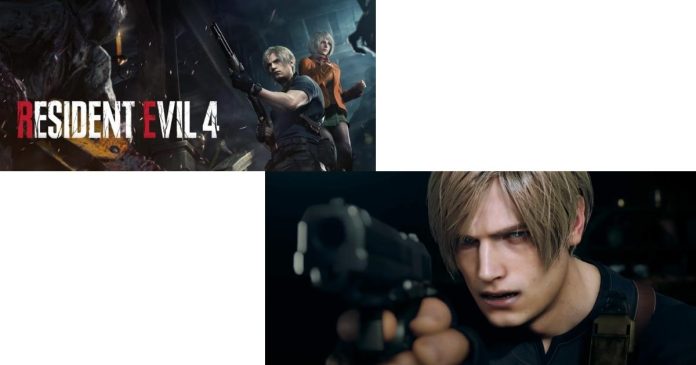When Capcom first released Resident Evil 4 in 2005, it revolutionized the survival horror genre, blending action with psychological terror to create one of the most influential video games of all time. Its tight gameplay mechanics, gripping storyline, and atmospheric world captivated both fans of the franchise and newcomers. Fast-forward to 2023, and Capcom has released a Resident Evil 4 Remake, raising hopes for a modern reimagining of a beloved classic. But does the remake live up to the original? Or has it turned a once groundbreaking game into something ordinary?
The Impact of the Original Resident Evil 4
Before diving into the remake, it’s essential to understand the significance of the original. Resident Evil 4 marked a major departure from the previous entries in the series, abandoning the fixed camera angles and slow-paced gameplay for a more dynamic, third-person perspective. It introduced a more action-oriented approach with fluid controls, over-the-shoulder shooting, and a more immersive experience. The game was critically acclaimed, receiving numerous Game of the Year awards and becoming a benchmark for the survival horror genre.
The story followed Leon S. Kennedy, a government agent tasked with rescuing the president’s daughter, Ashley Graham, from a rural Spanish village taken over by a mysterious cult. The game’s setting, enemy design, and tense atmosphere created an unforgettable horror experience, while its gameplay innovations made it accessible to a wider audience. For years, Resident Evil 4 stood as a shining example of video game excellence.
The Remake: A Faithful yet Fateful Decision
When Capcom announced the Resident Evil 4 Remake, there was much excitement, given the successes of previous remakes of Resident Evil 2 and Resident Evil 3. Fans anticipated that Capcom would modernize the experience, keeping the heart of the original intact while improving visuals, mechanics, and overall immersion for a new generation.
At its core, the Resident Evil 4 Remake largely sticks to the same storyline and structure as the original. Leon is still tasked with rescuing Ashley, navigating through hostile environments, and battling grotesque creatures infected with the parasitic “Las Plagas.” The visuals are stunning, with highly detailed environments, realistic character models, and impressive lighting that bring the world of Resident Evil 4 to life in ways the original couldn’t.
However, the remake’s attempt to modernize the experience also brings some significant changes. The combat, while familiar, feels more grounded and methodical. The addition of a more refined aiming system, strategic use of the environment, and an overhauled inventory system creates a more polished gameplay experience. Capcom also introduces new enemy types, expanded areas, and reworked sections of the original game, all of which aim to enhance the overall experience.
But despite these improvements, the game feels less revolutionary than its predecessor. The remake struggles to recapture the same sense of innovation and excitement that defined the original. The problem isn’t that the remake is bad—far from it—but rather that it fails to capture the magic that made the original such a game-changer.
Turning a Classic into the “Ordinary”
One of the biggest challenges with remaking a beloved classic is balancing nostalgia with innovation. Resident Evil 4 was not only a genre-defining title but also a game that challenged conventions. It was fast-paced yet atmospheric, action-packed yet horrifying, and visually stunning for its time. The remake, while undeniably beautiful, doesn’t feel as bold or innovative as the original did in 2005.
The updated graphics and more detailed environments make the world of Resident Evil 4 more immersive, but they also strip away some of the gritty, raw charm of the original. The old-school charm of tank controls and fixed camera angles, though often criticized, added a layer of tension and difficulty that is lost in the remake’s smoother, more fluid controls.
Additionally, some of the original’s more quirky and iconic moments, such as the campy voice acting and eccentric characters, feel less impactful in the new version. The remake aims for a more serious tone, but this shift in direction leaves behind the sense of fun and unpredictability that characterized the original.
Moreover, the changes made to gameplay mechanics and level design, while mostly beneficial, occasionally undermine the unique atmosphere that Resident Evil 4 brought to the table. The expansion of certain areas and the inclusion of additional content may appeal to newcomers, but they sometimes disrupt the pacing and intensity of the experience, making the game feel more conventional and less revolutionary.
The Price of Nostalgia
The Resident Evil 4 Remake is a competent, well-made game, but it doesn’t manage to evoke the same sense of awe and excitement as the original. It’s a product of its time, designed with modern sensibilities in mind, but in doing so, it loses some of the qualities that made the original game feel fresh and groundbreaking. By sticking closely to the original blueprint while making subtle but significant changes, Capcom has created a game that feels like a polished version of a classic—rather than an evolution of it.
For fans of the original, the remake can still provide an enjoyable experience. The updated visuals, voice acting, and combat mechanics add layers of refinement that improve the overall gameplay. But for those who remember the shock and excitement of the original, the remake may feel like a mere shadow of what came before—reliable, competent, but ultimately ordinary.
A Game of Its Time
Ultimately, Resident Evil 4 Remake is not a failure, but rather a product of a changing gaming landscape. It offers a more polished, modernized version of a classic, but it struggles to recapture the magic that made the original so special. While the remake is visually stunning and mechanically sound, it lacks the innovation and sense of adventure that made the 2005 release a genre-defining masterpiece. In the end, Resident Evil 4 Remake stands as a testament to the challenge of remaking a game that was already perfect in its own time—a classic turned ordinary in the face of modern expectations.



